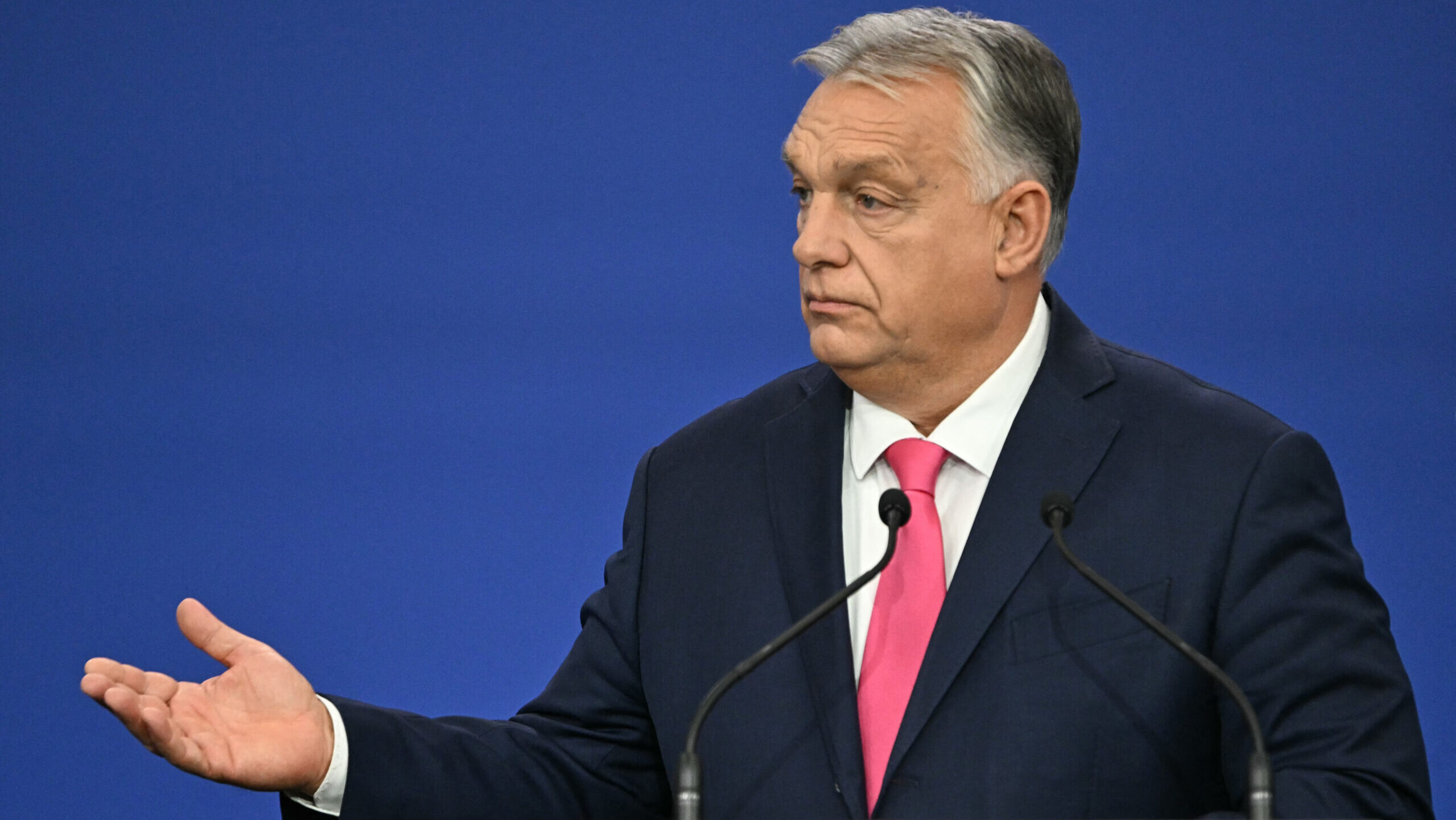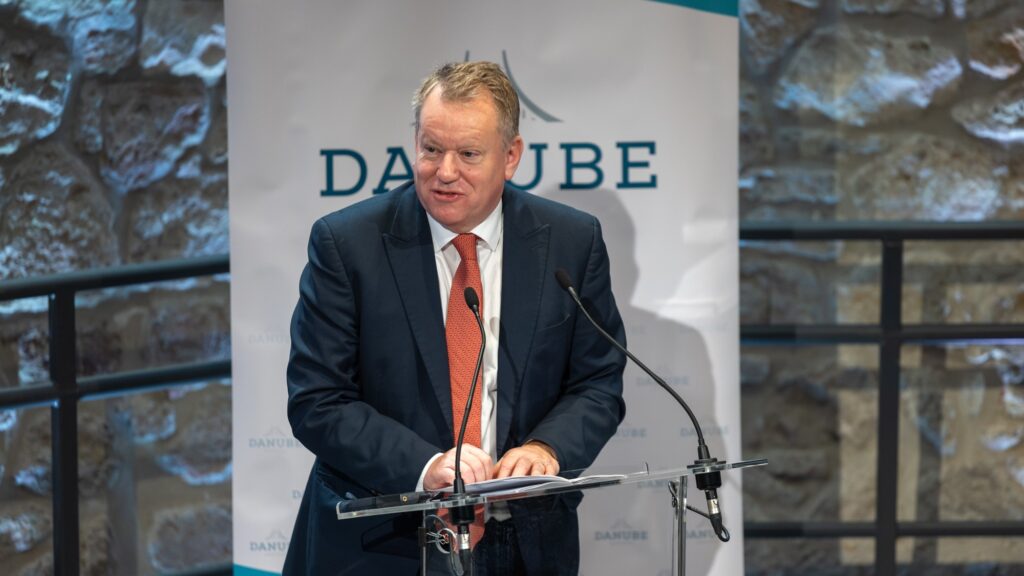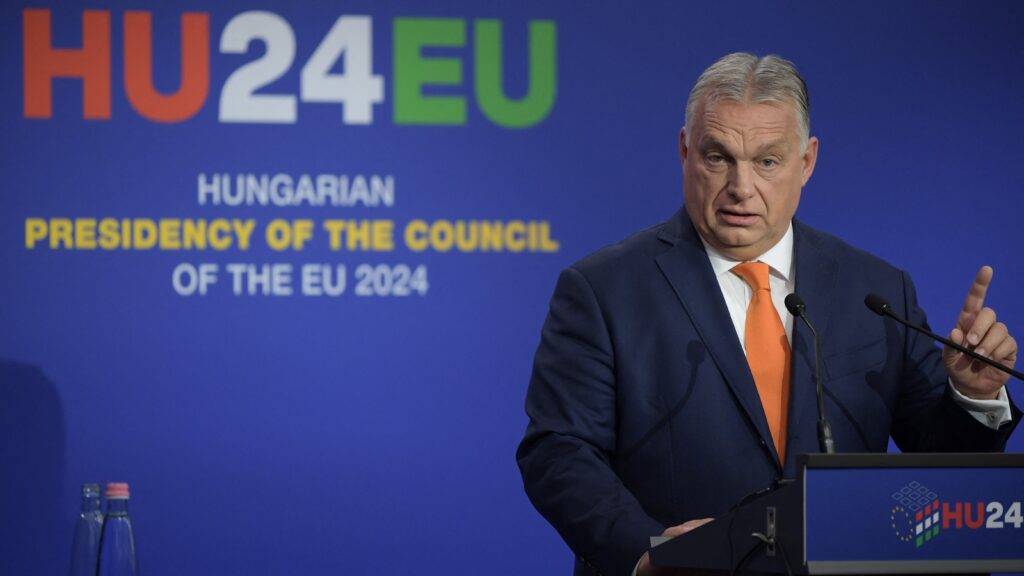At Thursday’s summit of the European Political Community (EPC) in Budapest, Hungarian Prime Minister Viktor Orbán stated in his closing remarks following the meeting that the participants reached a consensus on the urgent need for peace in Europe, as well as the necessity to respond to the outcome of the US presidential election.
‘The war launched by Russia against Ukraine is now in its third year, the Middle East is aflame and threatens to escalate, North Africa is embroiled in destabilising conflict, illegal migration remains a persistent challenge and is nearing its previous peak, and the global economy is facing a level of fragmentation not seen since the Cold War,’ Orbán highlighted.
He stated that the fifth meeting of the European Political Community, the largest diplomatic event in Hungary’s history, was held, attended by 42 heads of state and government, as well as the leaders of European institutions, the NATO Secretary General, and the Organization for Security and Cooperation in Europe (OSCE). He added that they gathered because they believe they can respond to these threats more effectively together than individually.
The Hungarian PM expressed his personal assessment of the situation, stating that there was a consensus on the urgency of action. In his view, ‘history has apparently accelerated’; a chapter has closed with the US elections, and the world will change ‘faster than we think.’
‘War or peace, migration or protection, forming blocs or connectivity, subordination or European sovereignty,’ he listed as the significant issues he believes are at stake. Orbán emphasized that no formal decisions were made at the meeting and noted that there were ‘a good number’ of differing opinions, so he could only report on areas of agreement.
Agreement on the Necessity of Peace
He stated that there was a consensus at the meeting regarding the need to respond to the US election result. ‘We need to recognise that significant changes are coming,’ he said. He noted that there was also agreement on the necessity of achieving peace in Europe as soon as possible and for Europe to assume greater responsibility for its own peace and security in the future. The Hungarian prime minister added that ‘we cannot expect’ the Americans ‘to be the only ones to protect us.’
The PM noted that there was also agreement that Europe must remain a meaningful player in the upcoming negotiations and processes that will determine the future. These negotiations will impact the fate of Europe, and he emphasised that Europe must be present with the necessary weight to influence the decisions that will be made.
‘There was also agreement on the necessity of achieving peace in Europe as soon as possible’
PM Orbán expressed his conviction that the issue of migration is once again challenging the boundaries of European institutions. He noted that this issue is highly contentious, with widespread dissatisfaction regarding the current situation and a collective desire for change.
He warned that there is a significant obstacle to political leaders’ desire for change that must be overcome, which he termed judicial activism. He explained that ‘we decide things,’ governments implement them, and common decisions are often undermined by initial European and subsequently national judicial rulings, leading to the progress made in reducing migration suddenly ‘falling apart.’ The only exception to this, he emphasized, is Hungary, which has consistently stood against judicial activism. The prime minister asserted that ‘I don’t think we can stop migration if we don’t rebel against the laws and court rulings currently in force.’
He noted that in addition to the plenary session, there were also working groups focused on economic security and migration. Orbán expressed gratitude to French President Emmanuel Macron for initiating this form of cooperation two years ago. The Hungarian prime minister, who held a joint press conference with the Albanian prime minister, also stated that the participants agreed on the need to continue and even strengthen the dialogue. They all concurred to be the guests of Prime Minister Edi Rama in Tirana, Albania, next May.
Europe Must Adapt to the Changes
‘It is now clear that the pro-peace camp is expanding, and with the US election, it has grown significantly,’ Viktor Orbán stated in response to journalists’ questions at a press conference following the meeting. Regarding this, he stated that he was not qualified to take a position on a matter where there was not full agreement, noting that there are differing opinions on whether to continue the war or pursue a rapid ceasefire and peace negotiations. ‘We are not discussing victory and defeat. We are talking about a ceasefire; we are talking about human lives; we are talking about halting the destruction,’ he said, highlighting that Europe must respond to the new situation created by the US elections. While this cannot be achieved overnight, he remarked that today we have taken an important step towards finding a response that will be acceptable to all 27 Member States of the European Union.
In connection with the war, the Hungarian prime minister cited an old Hungarian saying: ‘the shadow of an old sin is long.’ According to him, this holds true intellectually; if someone begins to act without the necessary intellectual groundwork, they will ultimately have to pay the price. He explained that the essence of war is victory or defeat, yet Europeans entered the conflict without a clear understanding of what victory entails. ‘If there is no definition of victory, how do you know how long you need to fight?’ he asked. ‘We never clarified: should we reclaim Crimea? Is Sevastopol to fly the NATO flag? Moscow? What constitutes victory?’ he continued, adding that since it was not defined, it became challenging to stop. He emphasized that this intellectual work could not be overlooked, stating: ‘We have to go back to the beginning’ and reconsider what they were trying to achieve. He hoped that by Friday evening—after the informal meeting of the EU leaders on Friday—they would be closer to addressing the unfinished work than they were this morning.
‘It is now clear that the pro-peace camp is expanding, and with the US election, it has grown significantly’
Regarding the €50 billion loan to Ukraine, which would be jointly financed by the European Union and the United States, he raised the question of how Europe would manage this on its own if the United States does not participate in future financing, and whether Europe is prepared to do so. He added that this amount will obviously not be sufficient, as further requests are likely to arise, prompting questions about who will finance it and how, as well as which other nations are willing to contribute. He also noted that the people of Europe are increasingly reluctant to fund a war they do not fully understand, including its purpose, duration, and the effectiveness of sanctions.
Orbán also made it clear that the outcome of the peace talks will not only determine the future of Ukraine but also shape the new European security architecture that will be established. ‘If the Europeans wish to participate in the negotiations for building a European security architecture, it is essential to engage in dialogue with all parties involved in the war; otherwise, someone else will take the initiative,’ he warned.
US–Hungarian Relations Under Trump 2.0
Turning to US–Hungarian relations, he stated that many things have gone awry in the past four years, resulting in Hungary experiencing discrimination in various areas. ‘Addressing these issues will be the primary focus of our cooperation with the new administration, and we also have plans of an economic nature, which I will discuss in due course,’ he said.
Speaking about his relationship with Donald Trump, Orbán said that it is undoubtedly a great opportunity for Hungary to be in closer alliance with the United States than ever before. This offers us opportunities which we will take advantage of, he said. He added that he is always proud to fight alongside those who seek to impose the will of the people against the ruling elite. ‘This is called democracy,’ he pointed out.
He also noted that regarding trade issues, Trump is a very tough negotiator, so ‘nobody should have any illusions,’ as there will be challenging negotiations with the United States concerning the future trade architecture.
More from the EPC Summit:








